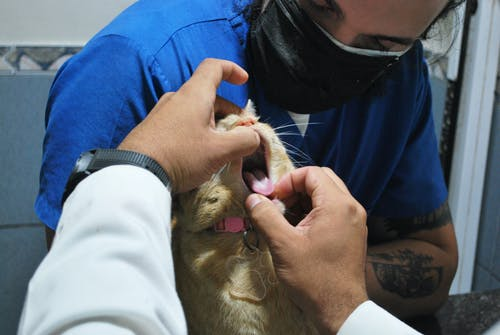Keep Your Cat Safe From Tick Bites With These Prevention Tips

Simple Ways to Prevent and Get Rid of Flea & Tick on Dogs
December 7, 2021
What You Need to Know About Online Pet Care & Veterinary Products
January 3, 2022Tick removal is without a doubt one of the least enjoyable jobs we have to look forward to each year. Not only are these blood-suckers unsightly to look at but they’re also notoriously tough to remove, necessitating getting up close and personal to ensure success.
Ticks are effective disease drivers because they cling to the skin when sucking the blood of your pet, eat slowly, and can go unnoticed for long periods while eating. Ticks take several days to finish their meal.
It is uncommon to observe more than one or two fleas on a cat since they are meticulous groomers. If you see a lot of ticks, it’s an indication that your cat is sick since they don’t groom themselves when they’re sick. It can be a bad indication. Beware! Your feline is in danger.
These pests can cause fatal infections if left unattended for an extended time or if they are not eliminated. So, what can you do this season to keep your cat tick-free?
In order to treat your kitty the best way for ticks, check out these Best tick prevention for cats points listed below!
1. Spot Treatment against Ticks
Using an over-the-counter spot-on medicine from your veterinarian, pet store, or simply by Buying Veterinary Products Online can be a highly effective way to control ticks and fleas. These meds are quite successful at preventing parasites for up to a month. While these treatments are beneficial, you must exercise extreme caution while selecting one. Make sure you thoroughly read all labels. If you have any questions about using a spot-on on your cat, get counsel from your veterinarian before doing so.
2. Oral Medicines for Cats
Once-a-month tablets are not as widely accessible for cats as they are for dogs, and the majority of tick prevention medications used for cats are pills designed for small dogs. A tick medication designed exclusively for cats looks to be a product still in production at the big pharmaceutical companies. You should consult with your veterinarian to see whether your super cute pet may properly use a product made for puppies. One advantage of utilizing a once-a-month tablet is that you won’t have to worry about little children coming into contact with the cat right after administration, or the cat leaving traces of the pesticides on the furnishings, as you may with spot-on treatments.
3. Shampoos can kill the Ticks off.
Ticks are often killed on contact when your cat is bathed with a shampoo containing medicinal chemicals. During peak tick season, this can be a low-cost (albeit labor-intensive) means of safeguarding your cat. You will also need to repeat the treatment more frequently, approximately every two weeks because the beneficial chemicals will not remain as long as a spot-on or an Anti Tick For Cat medicine. This may or may not be a feasible approach depending on how your cat reacts to bathing.
4. Tick Repellent and Sprays
The dip is very concentrated. Thus, it should be mixed with water first. You will not wash the pet after using a dip product. Because they can be quite potent, labels must be carefully studied before usage. A dip can not be used on extremely young pets (under four months). Consult your veterinarian for information on how to treat kittens.
Flea and Tick Remover, another medicated topical treatment, kills ticks immediately and offers long-term protection. Sprays may be used in between washes and dips, and they are especially handy if your cat spends a lot of time in the woods. When applying this product near your cat’s face, exercise extreme caution. Before using the spray, carefully read the label to ensure that it is intended for use on cats alone, and do not use it on or near any other animal in the house.
5. Tick Collars
Tick repellent collars are another option, albeit they are most beneficial for safeguarding the neck and head against ticks. The collar must come into contact with your cat’s skin for the chemicals to be transferred to the cat’s fur and skin. When placing this sort of collar on your cat, make sure there is just enough room for two fingers to fit under the collar when it is wrapped around the cat’s neck. To prevent your cat from chewing on the collar, trim any extra length, and keep an eye out for symptoms of discomfort (e.g., excessive scratching) in case an allergic response to the collar arises. When selecting a collar, be sure to carefully read the labels to ensure that it is acceptable for your cat.
6. Powders for your Kitty
Tick powders, another type of topical treatment, are efficient at both killing and deterring ticks from your pet. Whilst using the powder, be sure it is labeled for cats. Also, check the label to ensure that the treatment is intended to kill ticks as well as fleas. If breathed, this very fine powder might irritate the mouth or lungs, so apply little quantities and gently rub it into the skin. When dusting powders, keep them away from your face and eyes. During peak season, you will need to reapply the product around once a week. Some powders can also be applied in areas where your cat sleeps as well as other sections of the house where your cat hangs around.
7. Clean your House and Lawn
Keeping your lawn, shrubs, and trees maintained will help minimize the number of fleas and ticks in your yard. There will be fewer of these bugs to worry about if there are fewer places for them to dwell and breed. If you have a serious infestation, you might consider hiring an exterminator to administer yard and area sprays to control ticks and fleas.
8. Check your Cat Every Time
After a play outside in tick-infested regions, make sure to thoroughly inspect your cat for ticks. Examine the space between their paws, their toes, inside their ears, between their legs, and around the neck. If you catch the ticks before they attach and become plumped up, you may be able to save your pet from certain devastating diseases. When ticks are discovered, they should be removed as soon as possible and as carefully as possible.
9. Refrain your Cat from going to unknown Places
If you can limit your cat’s time outdoors during tick season, checking him every time he comes back indoors, you may be able to reduce the possibility of him becoming sick from a tick bite, because the longer the tick remains on the body, the more likely it is to transmit disease like Cytauxzoonosis or Lyme disease.
The most effective strategy to keep your kitty safe from ticks is to restrict it from roaming through forested areas where ticks are likely to lurk.
There are a few more precautions that need to be mentioned to let your cats be treated safely:
- On your cat, don’t use a tick remedy meant for dogs. This is incredibly risky and may be threatening.
- A cat’s sensitivity to several toxins is exceptionally high. Please consult your veterinarian before using any tick prevention products on your babies.
We know how much you hate these blood sucking ticks that trouble your furry friends. However, if you keep a note of and follow the above checklist, you can easily keep these pests at bay.
To get rid of ticks for a long time, you can easily Buy Veterinary Products Online like creams, shampoos, tick collars etc. via numerous online websites for a tick-free experience. However, make sure that you purchase tested products from authentic sources.
Following these basic preventive measures can go a long way to keep you and your little pet safe and happy.
Happy Petting!












